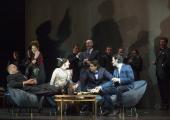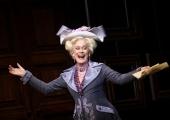Best of 2014: Opera

A vintage year as our reviewers struggle to narrow it down to a Top 10
When everything works – conducting, singing, production, costumes, sets, lighting, choreography where relevant – then there’s nothing like the art of opera. But how often does that happen? In my experience, very seldom, but not this year. It's been of such a vintage that I couldn’t possibly choose the best out of six fully-staged productions – three of them from our only native director of genius, Richard Jones, who as one of his favourite singers, Susan Bullock, put it to me, deserves every gong going – and one concert performance.









